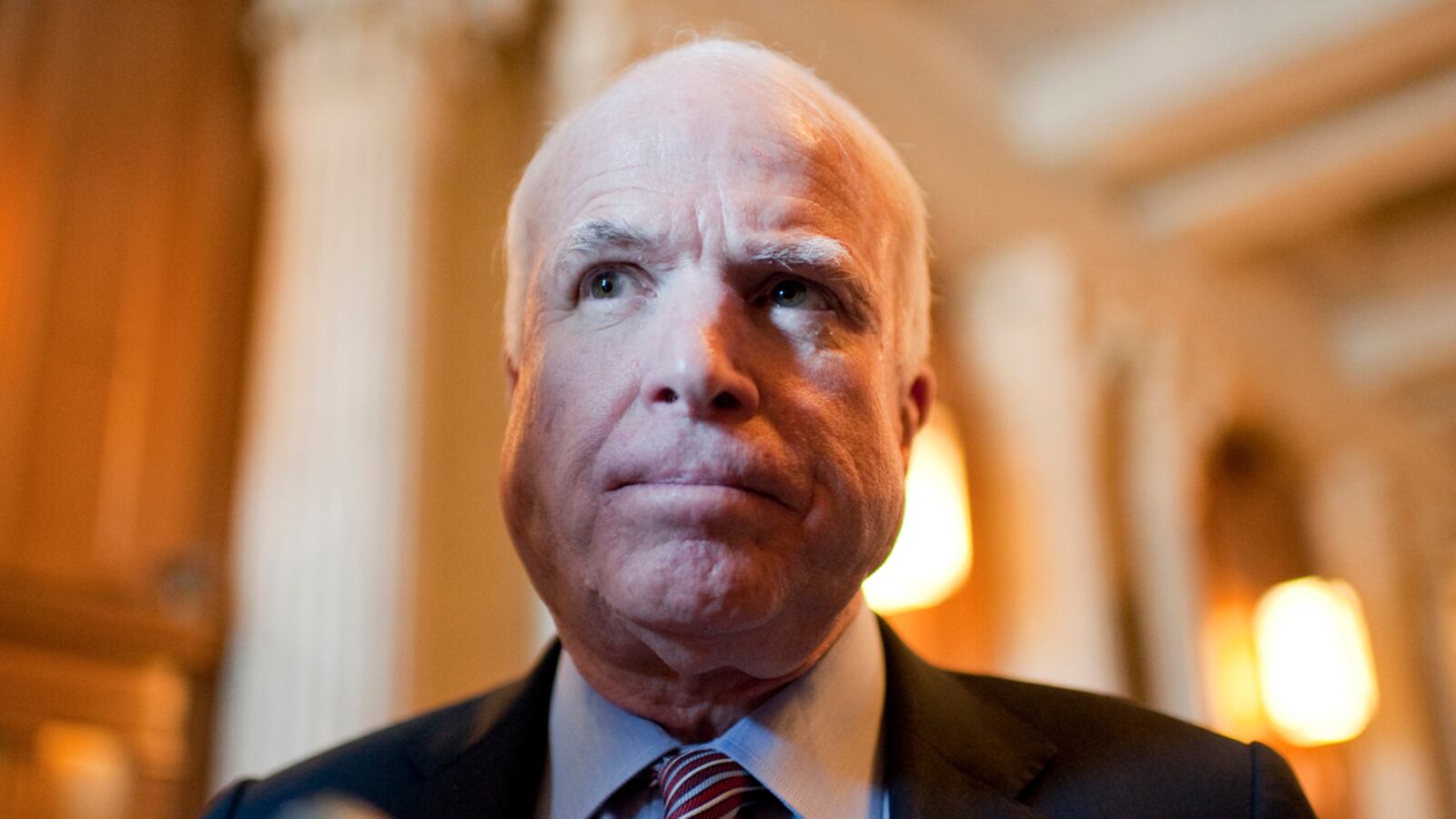Any notion that John McCain might be abandoning his longtime crusade for campaign-finance reform vanished on Tuesday as he sprayed a variety of targets, from the Supreme Court to super PACs to his fellow Republicans.

He called the new breed of political action committees, sometimes run by a candidate's former campaign manager, "the worst joke in Washington. It's outrageous. It's an insult to anyone's intelligence to say they're not connected, and independent." He also predicted the current system of unlimited spending would lead to a major scandal.
The GOP's 2008 presidential nominee spoke at a forum at Washington's Newseum, sponsored by Reuters. The discussion was moderated by Harold Evans, Reuters's editor at large and the husband of Newsweek/Daily Beast editor in chief Tina Brown.
McCain held out no hope for legislation to overturn the high court's decision in the Citizens United case, which overturned his signature McCain-Feingold law and opened the door to big-spending super PACs.
"Probably a majority of Republicans would vote against it because Republicans are profiting by it," McCain said, "and a lot of Democrats don't want to take it up." The result, he said, is that "both parties are disappearing. The importance of the parties has diminished dramatically." McCain is supporting Mitt Romney, but said Romney and the other GOP candidates had all been hurt by super-PAC attacks.
Former Democratic congresswoman Jane Harman called for greater disclosure of contributions to super PACs, which she said finance "vicious" negative ads. "We're going to end up finding huge amounts of foreign money coming into our election system to game the system," said Harman, a member of the Newsweek/Daily Beast Co.'s board. McCain said that was already happening indirectly because Sheldon Adelson, who has poured millions into the super PAC supporting Newt Gingrich, has casino interests in Macau.
David Keating, president of the Center for Competitive Politics, defended the Supreme Court ruling on free-speech grounds. "Corporations have speech because they're made up of individuals," he said. Keating also defended the independence of super PACs, saying "it is not rocket science" for staffers supporting a candidate to devise a sympathetic message without illegal coordination.
McCain used unusually strong language in describing the justices who struck down his campaign-finance law: "What the Supreme Court did was a combination of arrogance, naiveté, and stupidity, the likes of which I've never seen."
Former Louisiana governor Buddy Roemer, who is mounting a quixotic campaign for president, endorsed that view, saying, "We have a Supreme Court where not one of them held a political job. Not one of them was elected to anything."
For the current and former politicians on the panel, it was clear they carried scars from past battles. Harman recalled running for California governor in 1998 against wealthy financier Al Checchi who "spent $42 million over eight weeks ... twisting every single vote I had made in Congress." She said the primary was described as a "murder-suicide" because a third candidate, Gray Davis, won.
McCain noted that Barack Obama had abandoned federal matching funds in raising unrestricted amounts of money against him in 2008.
When Evans asked Harman what she thought about that decision, and Obama's more recent move to encourage a super PAC raising money on his behalf, the former lawmaker said she was "surprised" but that one side in a campaign cannot fight with the "gloves off."






